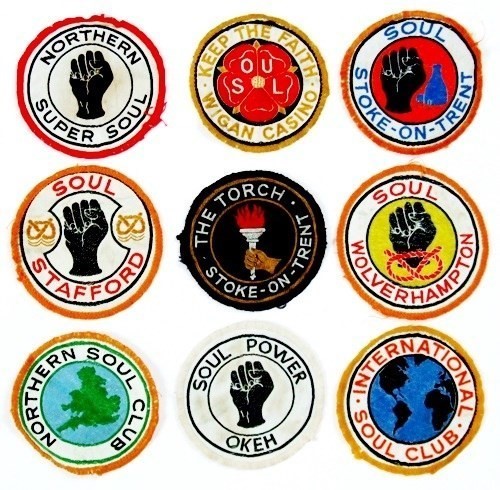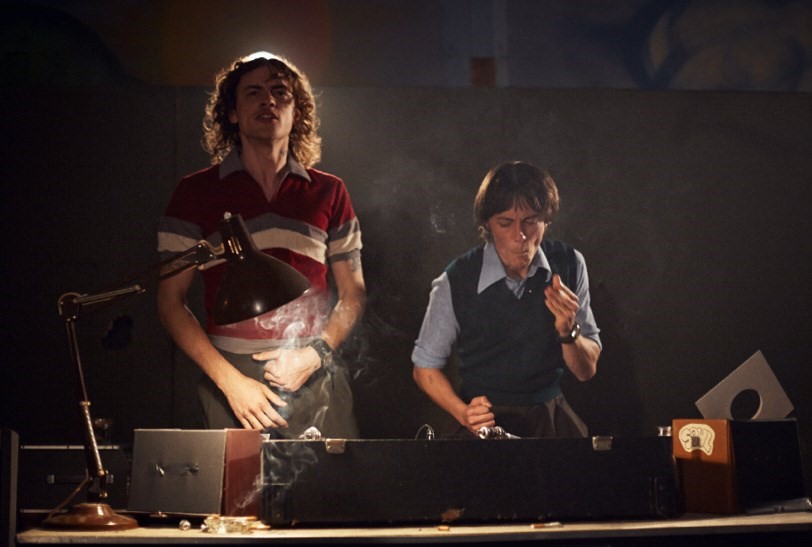We look back to the Northern Soul music scene and its enduring sartorial influence
Summer 2015, and the 70s is – without doubt – the most ubiquitous reference decade in fashion; flares and powdered suede have permeated every rung on the retail ladder from Topshop Coachella princesses to Gucci’s patchwork denim ode to the era. Far from the glamour of sun-drenched Americana, in the 70s to early 80s, the trend-setting youth in northern English towns were having none of this spectacle. As disco popularised wide flares and flamboyant dancing in nightclubs the world over, those in the know in the likes of Manchester, Wigan, Stoke and Blackpool had been busy building something realer, searching for escapism at soul nights in a strange phenomenon that saw some of America’s more obscure soul tracks becoming floor-filling anthems at Manchester’s Twisted Wheel and Wigan’s Casino clubs.
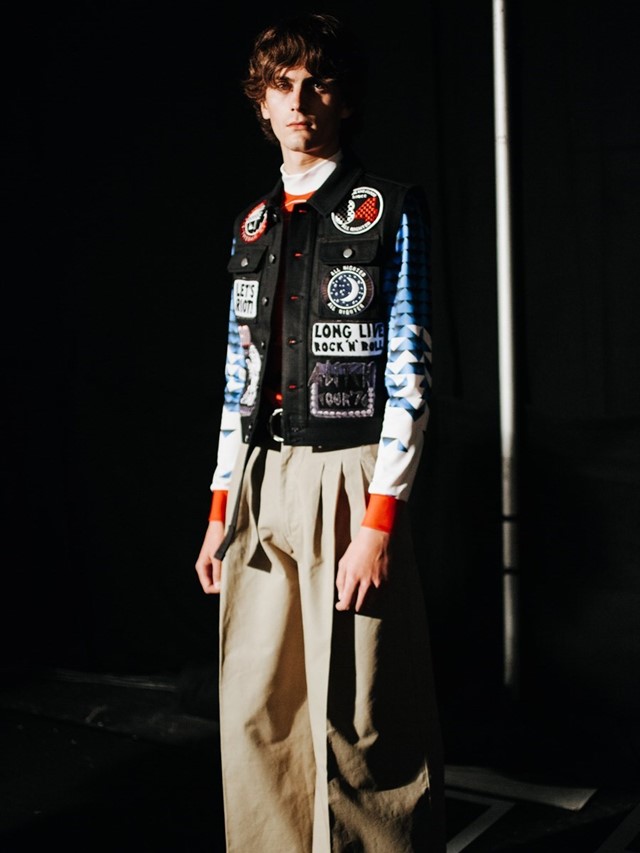
It was from these dance floors that Topman drew inspiration for looks in the S/S16 collection, shown last week at London Collections Men. T-shirts and vests emblazoned with "Soul Nites" aped the souvenir patches that read "Wigan Casino – Heart of Soul", "Night Owl", "The Torch Lives On" and "Soul Lancashire," favoured by the soulies. Although the complicated roots of Northern Soul initially drew on the sharp-fitting Ben Sherman-suited mod look, that saw young factory workers regularly dropping two weeks' wages on a made-to-measure suit or rare LP, the later look at Wigan’s iconic Casino Club put functionality first. In his book The Story of Northern Soul, original head David Nowell explains, “Wigan Casino was no fashion parade. It was a dance venue and these seasoned veterans knew better than to waste their trendy clothes on it. Narrow-bottomed jeans and a T-shirt or short-sleeved shirt were comfortable and functional in the last years of the Casino. No more than 32-inch wide Spencers and vests with badges on them. They had become a bit of a cliché amid all the media hype in the mid-70s.”
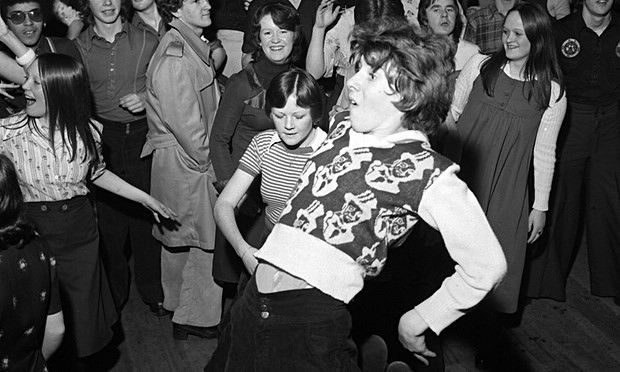
Soulies attended the infamous all nighters to dance, meet others in the scene and swap records – sourcing rare imports from the likes of Detroit. Uniform had to be accordingly functional to facilitate. In Wigan today, not far from where a display pays homage to former Wiganer, writer James Hilton, who coined the phrase "Shangri-La" to describe the mystical, harmonious valley of earthly delights, in his novel Lost Horizon, you will find another monument to a Wigan-born paradise. On the site where Wigan Casino used to be, stands a generic shopping centre – The Grand Arcade – where, opposite a TK MAXX and adjacent to a Costa Coffee, is an ode to the town’s proud work-hard play-hard heritage. Between the vintage posters, fanzines and photographs is memorabilia that includes a pair of black thick-soled shoes – chunky and sturdy for an entire night on dance-floor terrain – and an original holdall – carried by both the girls and the guys, and incredibly handy for stashing unnecessary extra layers of clothing, along with a few records to be bought, sold and swapped.
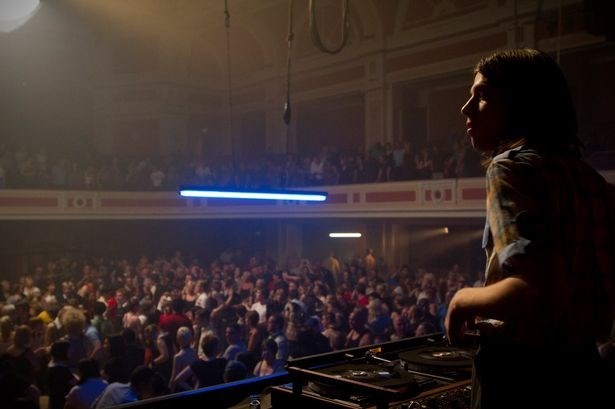
Another contributor to Nowell’s book recalls his memories of another pivotal Northern Soul club – the Twisted Wheel in Manchester – where, amongst the Ben Shermans, he noted, “that very many young fellows wore black ‘right on now’ racing gloves. Apart from looking cool and groovy they also serve a utilitarian purpose, for the dancing there is of such a high standard that a certain degree of acrobatic skill is incorporated, and when really carried away whole rows of lithe young bodies bend over backwards touching the floor with their hands!”
Earlier this year, writer and director Elaine Constantine was nominated for a BAFTA for her film Northern Soul – a coming-of-age story about a boy who, amidst the monotony of school to bleak factory work, finds release, belonging and friendship in dawn drives and amphetamine-fuelled nights at Wigan Casino, and a relentless search for that one record. Fashion, too, is heavily symbolic, with the male protagonist finding independence from his parents and – literally and metaphorically – rejecting his "short trousers" in favour of the long and baggy soulie style.
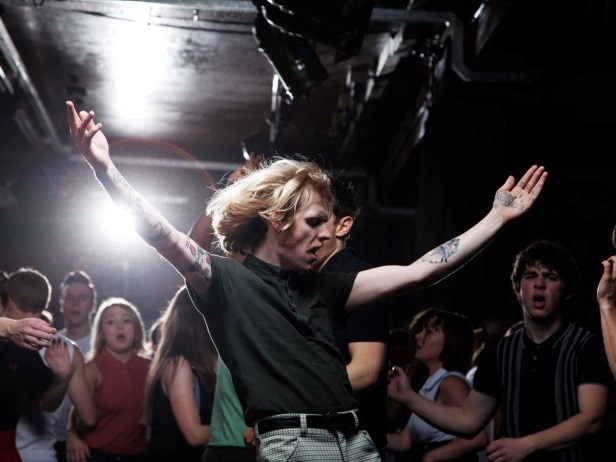
However, don’t call the recent references to this sub culture in fashion and film a comeback. Northern Soul has not lain dormant since the early 80s; revival nights still sell out across the country, and allow former scenesters to relive “the heart-thumping anticipation, the legs-turning-to jelly ordeal of dancing for hour after hour, marathon motorway journeys, the naughty substances and the sheer exhilaration of being part of your scene.” It is likely that this latest fashion love affair with Northern Soul will simply provoke the same reaction amongst the true heads as it did when the style broke out of the mainstream back in the 70s. As Nowell remembers, “The badges had become such a fashion accessory that most youngsters had one (even though many had never been near the Casino).”
